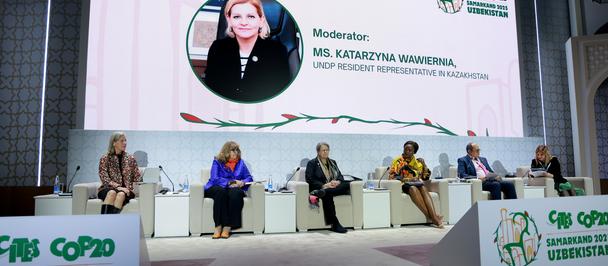Pilot environmental school project make schoolchildren stewards of forests and the environment
April 13, 2023
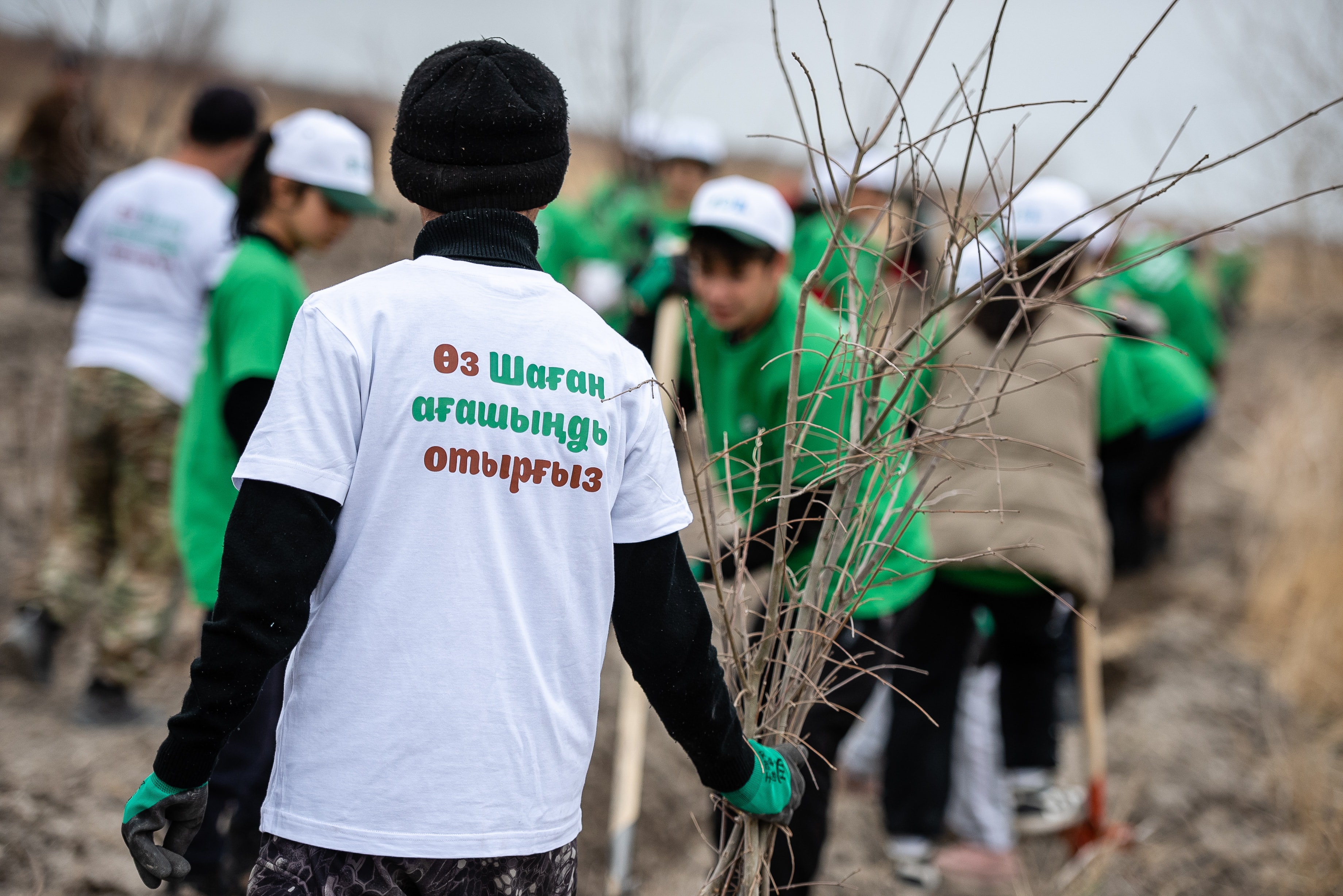
The children of Abay School from the small village of Shonjy in southeastern Kazakhstan are discovering modern solutions for biodiversity conservation and sustainable development of their region. Today the school is one of the pilot schools in the country where a programme of additional environmental education was introduced.

Adalayat is a 10th-grade student at the pilot school and she is proactive when it comes to her interest in environmental issues and so-called "clean" energy, which can solve not only the pressing problems of her home village, but those of the entire region. One such problem is power outages.
Adalayat says that when occur power outages in Shelek city, Shonjy’s residents also have no electricity. The electricity problem got her thinking about finding solutions. As it turned out, a currently nonoperational hydroelectric power plant on the Sharyn River inspired the students to develop a system allowing the village to generate its own electricity.
"For two weeks, we worked on a hydroelectric plant model and concluded that if we installed the same system nearby, our village would be supplied with electricity from renewable energy sources independently of the other settlements,"Adalayat explains.
Children tune-in to native flora and fauna thanks to hands-on classes on the local environment
Since Shonjy village is located near the Charyn National Park, the schoolchildren know firsthand about the environmental problems of their area and the need to preserve biodiversity. Today, the Abay Kunanbaev school is one of six pilot schools where environmental classrooms for students' hands-on work have been established as part of the United Nations Development Programme (UNDP) and the Global Environment Facility (GEF) project in Kazakhstan.
In 2021, an additional environmental education programme was developed and implemented as part of the UNDP Forest Ecosystem Conservation Project in the regions of East Kazakhstan, Turkestan and Almaty. The project included schools in Kegen and Uyghur districts of Almaty region, Katon-Karagay and Kurchum districts of East Kazakhstan region and Tolebi district of the Turkestan region.
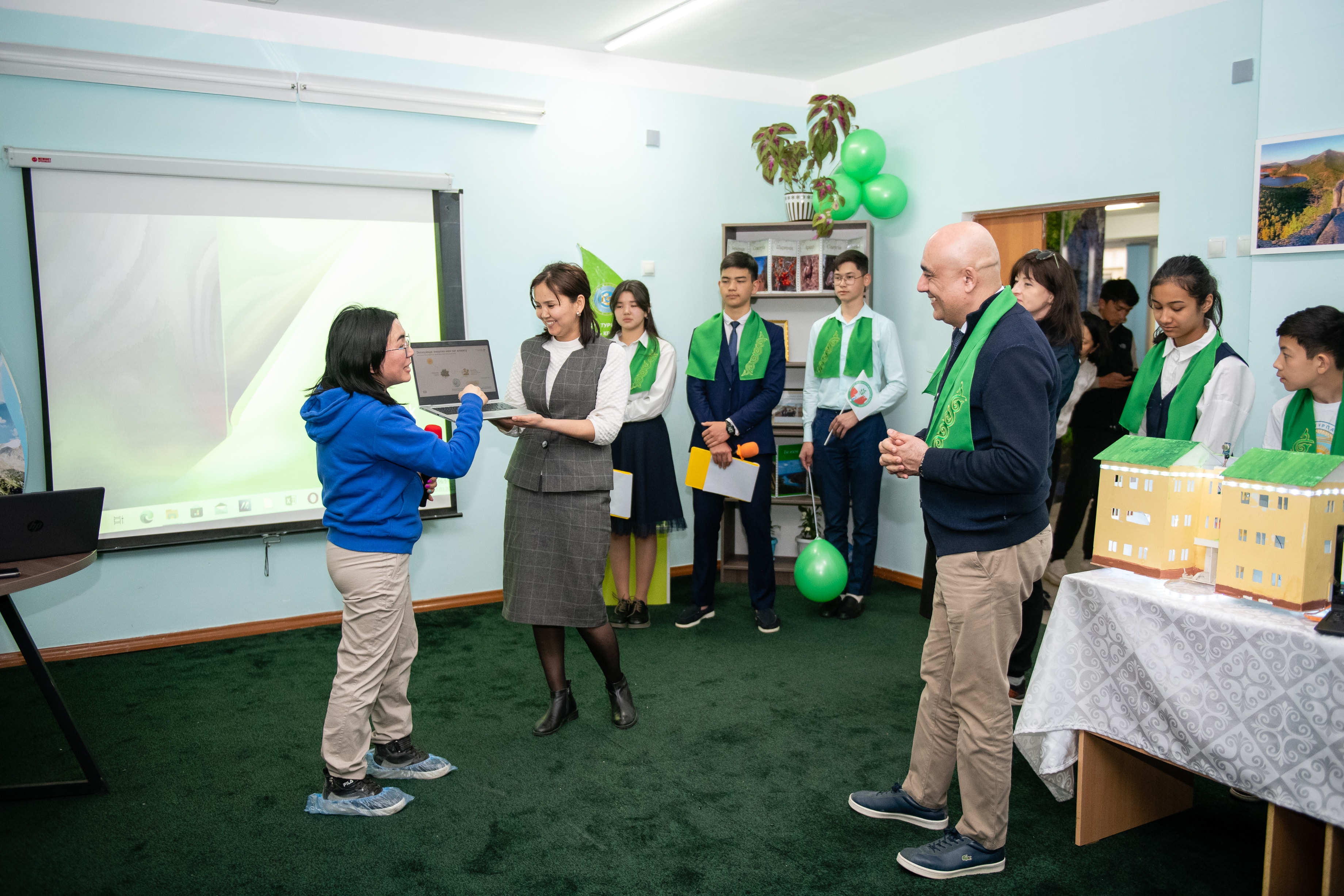
Assel Nurgaliyeva, holder of a master's degree in ecology, teaches biology at Abay school. She notes that the project created an environmental classroom in a rural school and ecology was introduced as an additional lesson for students in grades 6-8.
"It is extremely important to involve children in environmental education, to teach them to love and care for the environment and to develop an environmental culture. Now we have everything we need for quality ecology education: presentation lessons, methodology manuals on the flora and fauna of Kazakhstan, and the motivation to share this knowledge with students,"says Assel Nurgaliyeva.
To help biology teachers, UNDP experts developed more than 90 digital illustrated presentation lessons in Kazakh and Russian for 6-8 grade students on ecosystems and the flora and fauna of three pilot regions: Northern Tien Shan and Zhetysu Alatau, Western Tien Shan and Kazakh Altai.
Imparting a sense of stewardship for nature among students
In the framework of the project, more than 130 teachers from pilot districts in Kazakhstan participated in workshops on the new education programme. During the workshops, teachers learned how to use materials, learned about the methods and now to teach ecology in accordance with the new methodology. The new methodology focuses on the local environment and the teaching materials are based on the example of a particular region. Thus, knowledge of the flora and fauna of a particular area and region helps both teachers and children to focus on finding solutions and to apply them in practice.
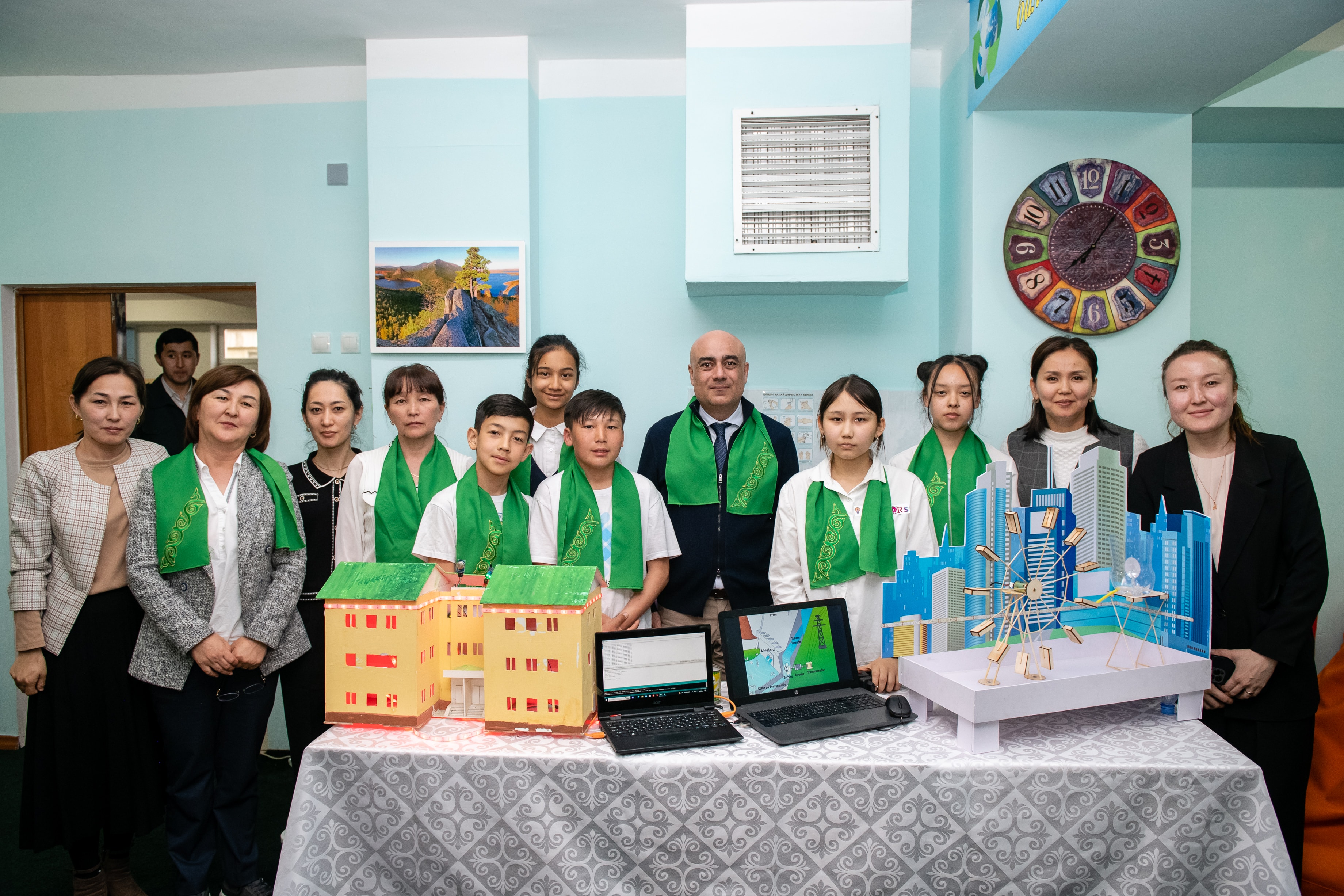
"The new ecology lessons, designed in digital format, include educational information, high-quality photos and videos of landscapes, plants and animals, as well as interactive diagrams. We ourselves are very keen to study the nature of our region and on learning new things. We are glad to conduct lessons on this programme with such rich and high-quality educational materials,"says Assel Nurgaliyeva.
Under the impact of climate change and the irrational use of natural resources, environmental responsibility education is becoming especially important among young people. Schoolchildren in Shonjy village admit that they already understand the importance of preserving the nature of their region. According to Bagzhan, a 9th-grade student, ecology classes are useful because they inculcate an ecological culture in his peers.
"I often think about my contribution to improving the environment in my homeland. For example, on school grounds, I can clean up trash, plant trees and flowers and water them. Ecology classes are important because they teach us how to behave and how to interact with the environment properly,"Bagzhan says.
Teaching children to think outside the box produces inventive minds
In addition to these environmental classes, the pilot school in Shonjy has a school forestry unit. Specialists from the Charyn National Park hold regular special sessions for the students who take field trips to the nature museum and actively participate in environmental events.
Due to the dry climate in most parts of Kazakhstan, the threat of forest fires is still topical in the country. Yerkebulan, an 8th-grade student, offers his solution to this problem. Together with a classmate, they developed a pre-alarm system for firefighters. He notes:
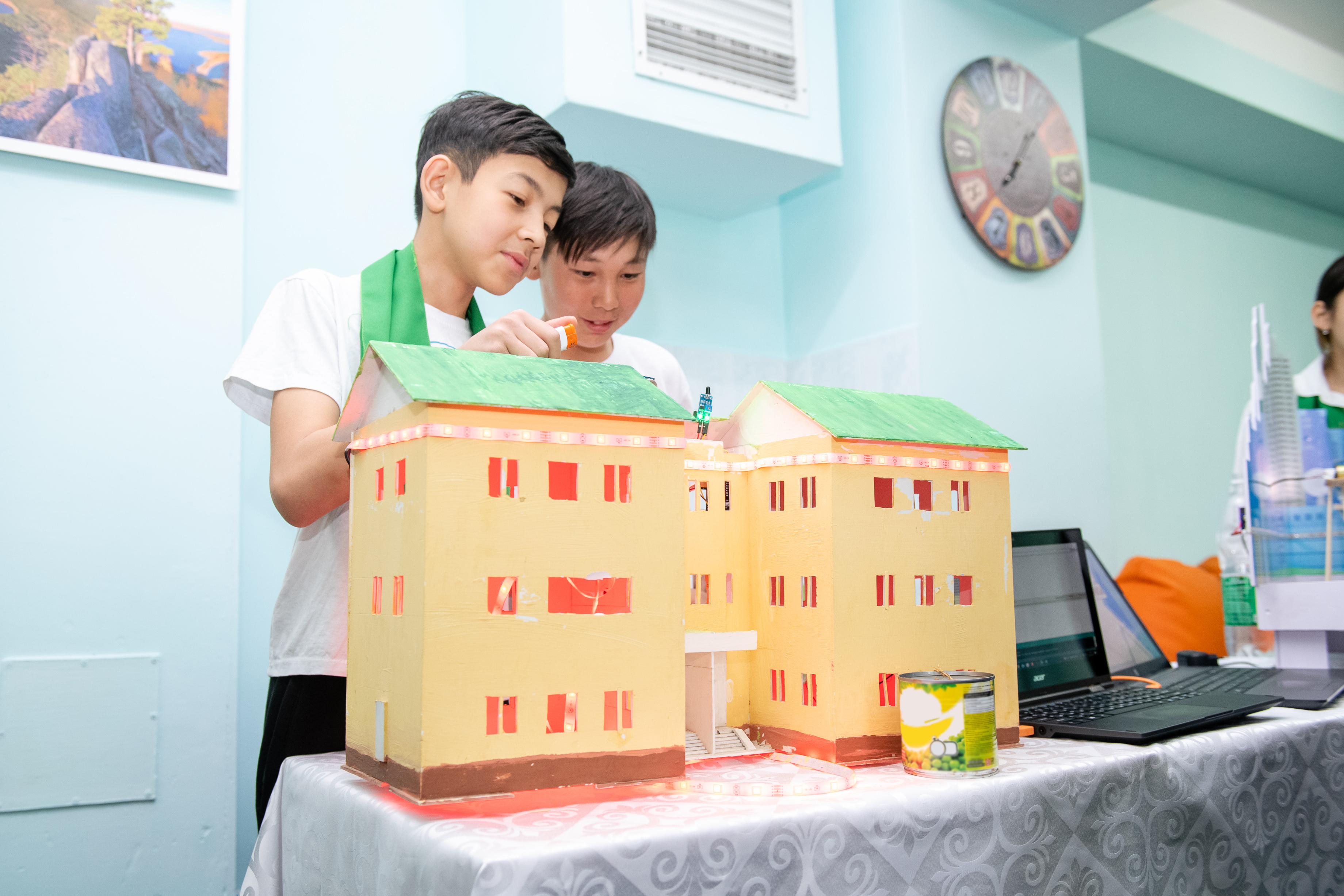
"For the project, we used sensors that respond to fire and gas that forms during a fire. So when fire and gas are present, an audible signal is triggered, alerting firefighters to the threat. I really hope that projects like ours will soon be implemented in Kazakhstan's forestry facilities,"Yerkebulan says.
More than 100 schools in the regions of Eastern Kazakhstan, Turkestan and Almaty were part of the UNDP initiative to develop and implement a programme of additional environmental education.
Forest management also key to conservation
In line with the goals of the United Nations Decade on Ecosystem Restoration (2021-2030), UNDP systematically supports the Government of Kazakhstan in developing sustainable agriculture and forestry, forest nurseries for growing valuable tree species, restoring degraded land, reviving old tree species and introducing new technologies for growing forest crops.
Under a joint UNDP project, in partnership with the Ministry of Ecology and Natural Resources, and with the financial support of GEF, Kazakhstan is working to improve its conservation system and forest resources management. The aim is to prevent the loss and degradation of forests of high conservation importance and the associated ecosystems and biodiversity within the network of specially protected natural areas of Kazakhstan.

 Locations
Locations




